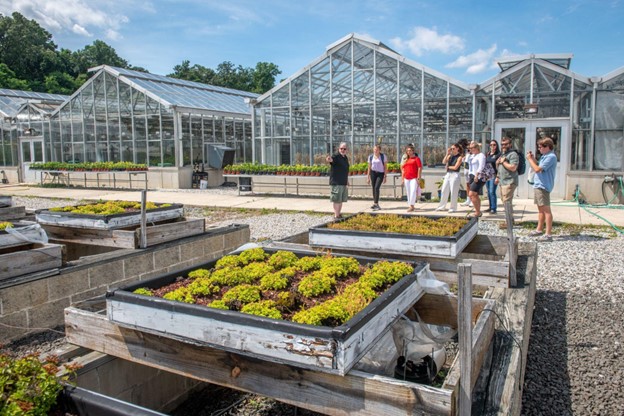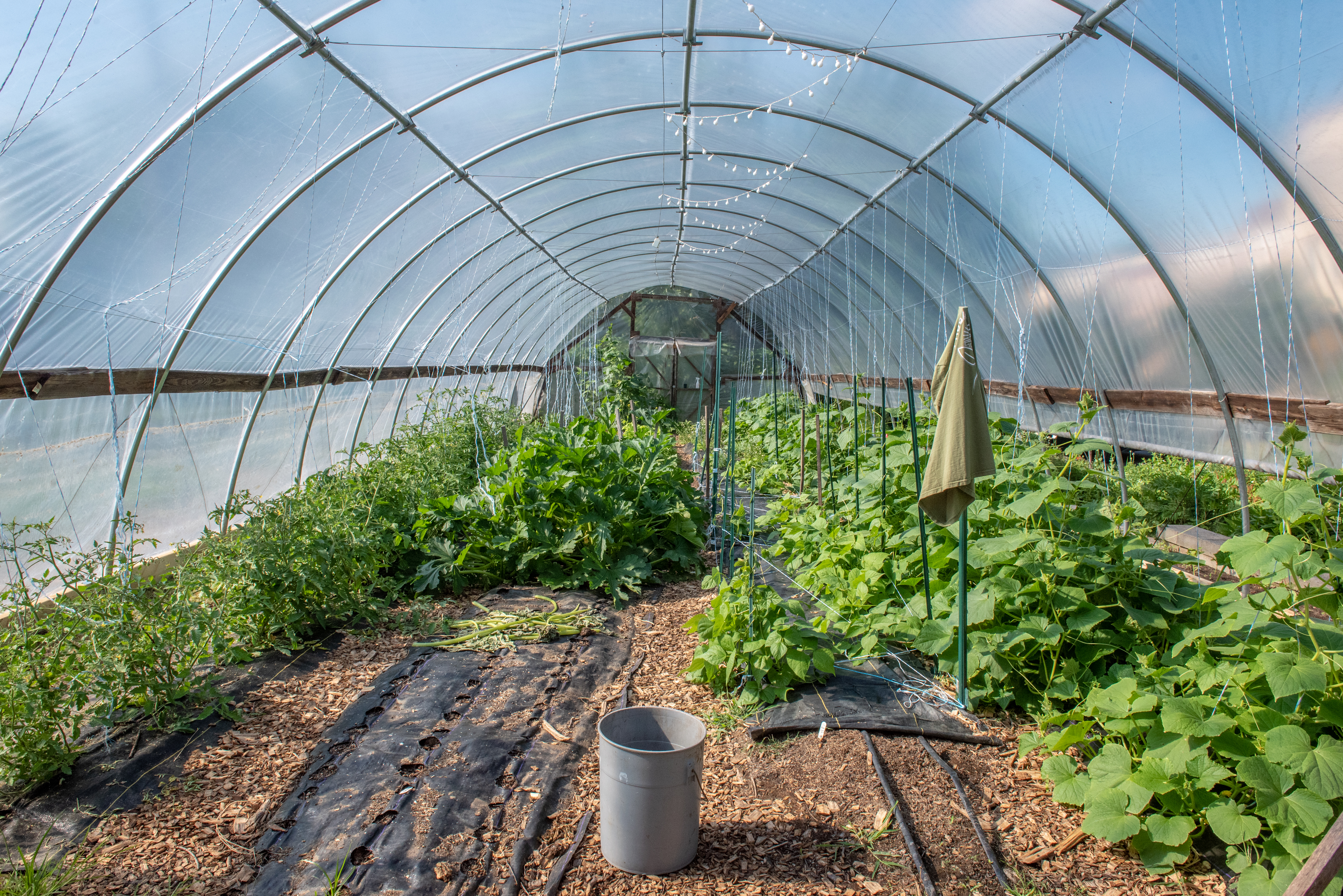Olivia Scuderi is a University of Maryland undergraduate student and guest contributor to this blog.
Given the advanced age of the average American farmer, addressing the need for young and beginning farmers is critical to stabilizing the U.S. food system. Similarly, farm viability for small and medium-sized farms is vital to the future of agriculture. As a young farmer about to transition into running my family’s farm, I have first-hand knowledge of the vulnerability of small farms. To support the viability of my family’s farm and countless others, it is essential that the 2023 Farm Bill provide support for small to medium-sized farms.
To address the myriad of challenges facing small to medium-sized farms, the Farm Bill Law Enterprise advocates for the establishment of incubator farm training programs. These incubator programs equip new farmers with the skills they need to succeed. Specifically, incubator farms provide hands-on experience and teach new farmers business management skills, such as acquiring farmland and navigating marketing opportunities.
To ensure young and beginning farmers have access to incubator farms, legislators should include funding for these training programs in the upcoming Farm Bill. Currently, incubator programs compete with other programs for funding. This competition creates a sense of instability and a need for consistency in what they can provide for their new farmers. As a young farmer, stability is a crucial grounding mechanism for the farmer and provides confidence in what they are starting. Learning through my family, starting a farm is hard work, but keeping it up to date with the trends is vital to a new farmer’s viability. If specific resources are not provided consistently or constantly updated, the information may no longer apply to the current system. If young and beginning farmers feel confident in their preparation, they are more likely to start or take over a farming operation and stay attuned to the changing markets. By supporting funding for FOTO (Farming Opportunities Training and Outreach), in the 2023 Farm Bill, incubator programs will have access to consistent funding support and be better equipped to train the next generation of farmers.
The Farm Bill should also provide much-needed support for young and beginning farmers by funding Beginning Farmer and Rancher Coordinator positions. Coordinators can help bridge the gap between the beginning farmer and the programs that the USDA has to offer. This form of outreach and support can help those find assistance programs and grants that could make life easier when starting a farm. Funding coordinator positions will equip them to promote the best opportunities for young farmers. The increased funding should drive space for improvement in these positions through the 2023 Farm Bill.
The 2023 Farm Bill should support programs for young and beginning farmers in order to ensure a stable and reliable food system and overall farm viability. I know from personal experience that farming is an inherently risky business; however, providing young and beginning farmers with sufficient training can increase the likelihood of success for the next generation of farmers. For more on FBLE’s recommendations for supporting young and beginning farmers, see the Farm Viability Report.
The views and opinions expressed on the FBLE Blog are those of the authors and do not necessarily reflect the official policy or position of FBLE. While we review posts for accuracy, we cannot guarantee the reliability and completeness of any legal analysis presented; posts on this Blog do not constitute legal advice. If you discover an error, please reach out to contact@farmbilllaw.org.
Photo Credit: Edwin Remsberg


